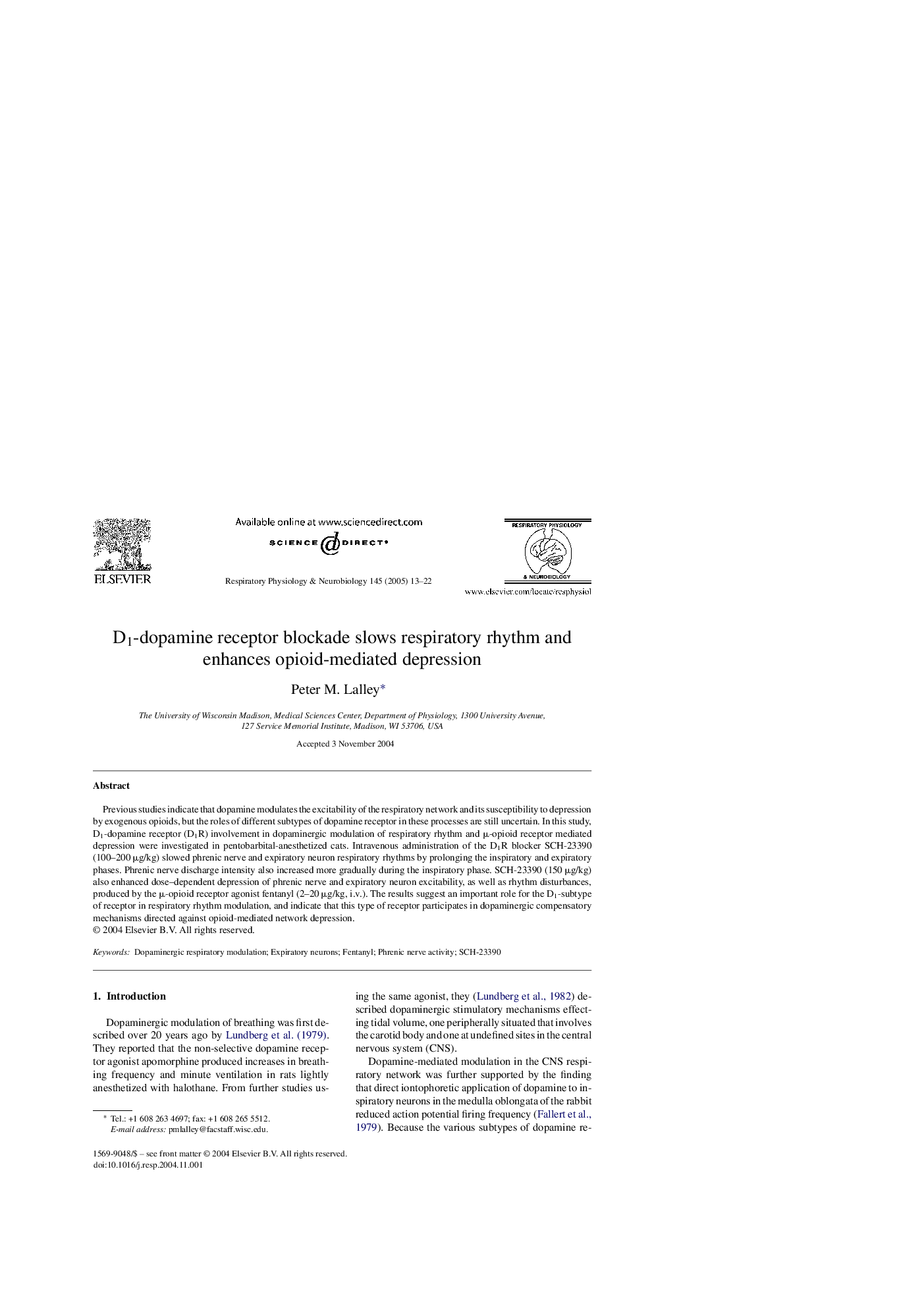| Article ID | Journal | Published Year | Pages | File Type |
|---|---|---|---|---|
| 9152480 | Respiratory Physiology & Neurobiology | 2005 | 10 Pages |
Abstract
Previous studies indicate that dopamine modulates the excitability of the respiratory network and its susceptibility to depression by exogenous opioids, but the roles of different subtypes of dopamine receptor in these processes are still uncertain. In this study, D1-dopamine receptor (D1R) involvement in dopaminergic modulation of respiratory rhythm and μ-opioid receptor mediated depression were investigated in pentobarbital-anesthetized cats. Intravenous administration of the D1R blocker SCH-23390 (100-200 μg/kg) slowed phrenic nerve and expiratory neuron respiratory rhythms by prolonging the inspiratory and expiratory phases. Phrenic nerve discharge intensity also increased more gradually during the inspiratory phase. SCH-23390 (150 μg/kg) also enhanced dose-dependent depression of phrenic nerve and expiratory neuron excitability, as well as rhythm disturbances, produced by the μ-opioid receptor agonist fentanyl (2-20 μg/kg, i.v.). The results suggest an important role for the D1-subtype of receptor in respiratory rhythm modulation, and indicate that this type of receptor participates in dopaminergic compensatory mechanisms directed against opioid-mediated network depression.
Related Topics
Life Sciences
Biochemistry, Genetics and Molecular Biology
Physiology
Authors
Peter M. Lalley,
